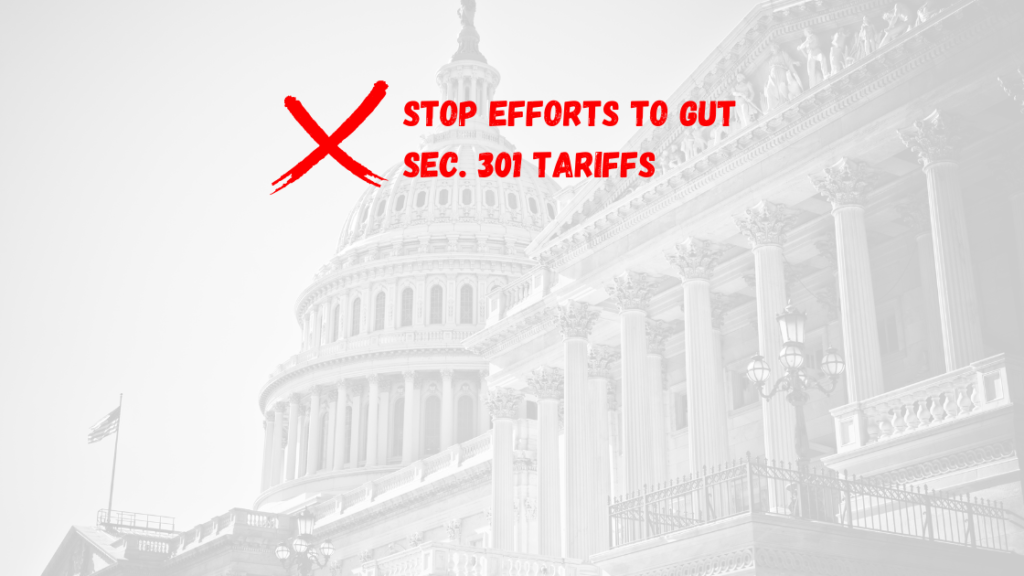WASHINGTON — The Coalition for a Prosperous America (CPA) today released a statement opposing Senator Pat Toomey’s (R-PA) poison pill effort to gut Section 301 of the Trade Act of 1974 and undermine efforts to address unfair foreign trade practices by China. Specifically, CPA is urging Senators to oppose the Toomey motion to instruct (MTI) conferees to include Section 73001 of the U.S. Innovation and Competition Act (USICA) in the final China bill conference report. CPA joins U.S. Trade Representative (USTR) Katherine Tai, the AFL-CIO, and the Alliance for American Manufacturing in opposing the Toomey MTI and Section 73001. Last month, CPA released a poll from Morning Consult that shows voters overwhelmingly support tariffs on China and want Congress to strengthen Section 301 tariffs. Read CPA’s Legislative Alert for more information.
“My company Atlas Tool, located in Illinois, has been manufacturing in the U.S. for over a century,” said Zach Mottl, Chairman of CPA. “We make components for medical equipment and devices, as well as components for industrial equipment and machinery. By gutting 301 tariffs and making exclusions virtually guaranteed for importers, this effort would encourage firms to send their contracts to China rather than domestic manufacturers like my company. We are exactly the kind of American manufacturer that has suffered at the hands of China’s economic warfare. The U.S. government imposed Section 301 tariffs on China to counter this attack on American manufacturers and workers. It is unconscionable that some in Congress are trying to gut this important trade tool and tilt the scales against not just my company, but countless other American companies and workers. The Senate should promptly reject Senator Toomey’s poison pill.”
Specifically, Section 73001 of USICA is a poison pill that:
- PRIORITIZES CHINESE PROFITS OVER U.S. ECONOMIC SECURITY in defending against foreign economic warfare and rebuilding U.S. supply chains.
- CEDES ECONOMIC SOVEREIGNTY TO GENEVA: Makes it virtually impossible for the President to impose Sec. 301 tariffs without the approval of foreign bureaucrats in Geneva.
- OFFSHORING: Explicitly directs USTR to consider access to cheap Chinese imports over U.S. production.
- DISMANTLES EXISTING CHINA 301 TARIFFS by allowing any Chinese producer to claim “lost profitability” to obtain an exclusion.
- REFUNDS CHINA with U.S. taxpayer dollars for any Sec. 301 tariffs paid in 2021 if an exclusion expired at the end of 2020 — transferring at least $14 billion from the U.S. Treasury to Chinese companies.
A Morning Consult poll of registered voters finds that an overwhelming majority of voters support tariffs on China.
- 71% of Democrats, 70% of Independents, and 76% of Republicans support the U.S. government using trade remedies like tariffs on China.
- An overwhelming majority of voters (71%) support the U.S. government continuing to impose Section 301 tariffs on China and a strong majority (60%) oppose China continuing to receive Most Favored Nation (MFN) trade status.
- A majority—52%—of American voters oppose the U.S. government using taxpayer dollars to refund companies importing Chinese products that are now excluded from tariffs because they paid Section 301 tariffs in the past.
- Only 6% of voters think that Congress should weaken the U.S. government’s ability to impose Section 301 tariffs.
Read CPA’s Legislative Alert for more information.













